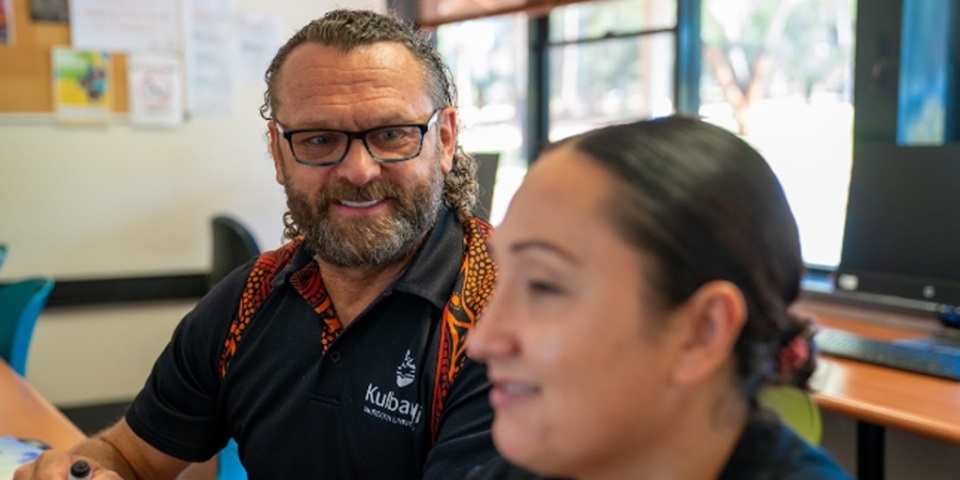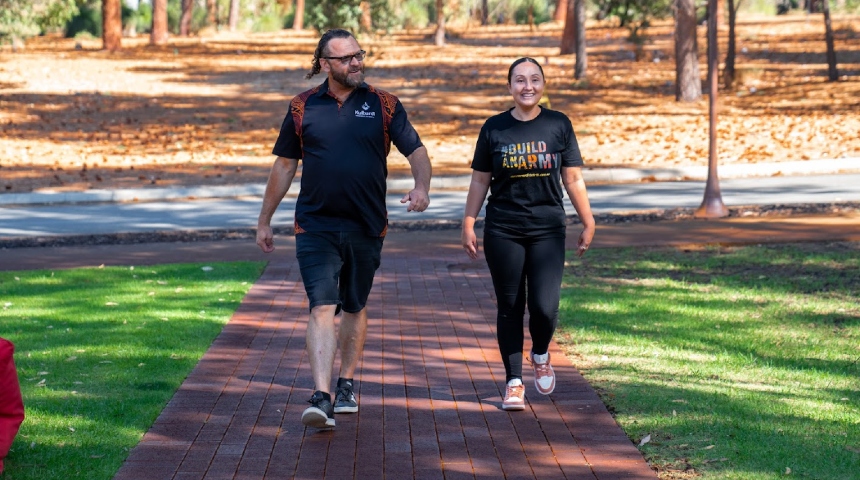News
Aaron is proof that anything is possible at university

Aaron Taylor is the most unlikely of university students. He’s also one of Murdoch’s most inspiring.
A challenging home life prompted him to leave school at 13 and run away at 14, never to return to complete his schooling.
“I can almost trace my destructive life back to the moment I jumped out the window of my home,” Aaron says.
“That decision cost me everything.”
It led him down a troubled path to a twenty-year drug addiction. That lifestyle culminated in being caught three times with methamphetamine and destined for a long jail term.
“I used to cry on the train on the way to court looking at all the people dressed in suits going to work,” he said.
I always knew that education was the key to getting that opportunity and I’d missed that from a very young age.”
Aaron Taylor
But then he caught a break.
A guilty plea let Aaron enter the Drug Court Program, a strict supervision and treatment regime that supports participants to address substance misuse and the lifestyle that comes with it.
“The drug court program has limited spots, so I was really lucky to get in – especially as I’d had my three strikes with serious drugs.”
The program is run by a magistrate and team of support staff who help addicts make the big changes required to avoid relapsing and reoffending.
“But if you fail to make a change, you get kicked out and back into jail.”
As there were only limited accommodation facilities available for participants, Aaron initially moved in with his daughter following a stint in detox for the first six months of the program. During that time, a chance encounter put him back into contact with his Uncle Len Collard, who was working at Murdoch University.
“Uncle Len encouraged me to seek out Kulbardi Aboriginal Centre,” Aaron says.
Kulbardi changed my life and has been the driving force behind my sobriety ever since.”
Aaron Taylor
While he was visiting Uncle Len, Aaron asked staff at Kulbardi about whether he might suit university, thinking it could be the big change he needed to make.
He took an educational test on the spot and – despite being rejected from TAFE that very morning – received an invitation to enter Kulbardi’s K-Track bridging program that afternoon.
The message came through on his way to his regular court appointment. It was such an unlikely turn of events that he had to walk up to the court bench and show the judge his university offer on his phone.
That was the turning point.

Image: Aaron Taylor with Sophia Allen, who has also received a Westerman Jilya Institute for Indigenous Mental Health scholarshi
Aaron’s first year of university included mandatory urine tests three times a week as a requirement of drug court, along with a weekly court appearance every Friday.
Despite coming close to going back to jail in that first year of the bridging course – he missed four of a maximum five mandatory urine tests because he was too engrossed in his study at university – he never went back.
“I still had big court fines to pay off, so I asked at Kulbardi if they had any work to help me pay them and was offered a part time job helping out with student support.”
Aaron thrived in the role and progressed to become Lead Facilitator at Kulbardi, a role he still holds today helping other Indigenous kids find their way to and through university. This year he will complete what once seemed the most unlikely of degrees.
Video: Aaron shares his story with Bridget Brennan on ABC News Breakfast
Not only has he beaten long odds to get a university degree, but he will do so with great accolades.
He graduates this year as the recipient of a Dr Tracy Westerman Indigenous Psychology Scholarship, a Vice Chancellor’s Award for Academic Excellence, a prize for the highest grade in a unit and a distinction grade point average.
“To be honest, I never thought I would be in a situation where I would not only have the opportunity to enter university but also shine in that environment,” Aaron said.
“So, if you think you can’t do it, just look at me.
“Anything is possible if you’re prepared to do the work.”
Learn more about the critical role Kulbardi Aboriginal Centre plays in supporting First Nations students.News
Aaron is proof that anything is possible at university
Posted on